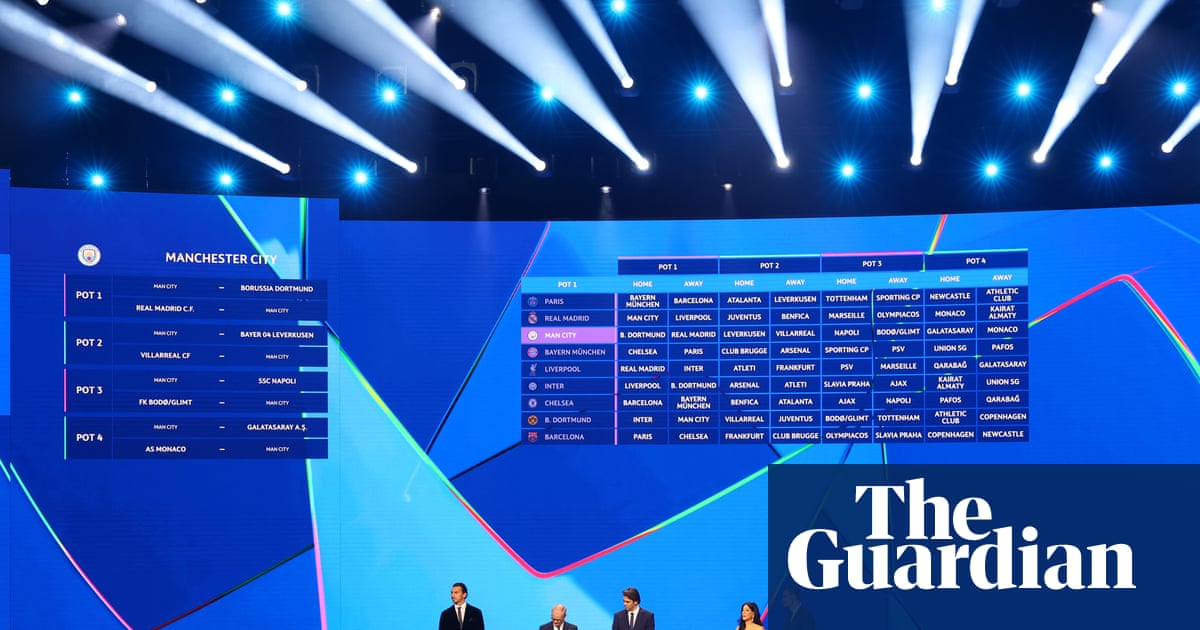
"These are games that have massive teams in them. They are happening in a massive competition. There will be famous players in famous kits in famous stadiums. There will be Champions League branding. They will play the Champions League theme tune. They will use the Champions League ball, taking its cues this season from the night sky and featuring hand-drawn zodiac signs in gold that symbolise heroic deeds and heavenly destiny."
"On 28 January there will be a massive, barely comprehensible night of 18 simultaneous games, games in which last season, as Giorgio Marchetti, Uefa's excitable deputy general secretary, breathlessly reported: Almost every team changed their position on the table at least once. And amid the blur of goals and flashing as-it-stands tables, perhaps nobody will realise that nothing that has gone before really matters all that much, that we have played 144 games to get a predictable last 24."
"There was a surprising amount of positivity about the revamped Champions League last season, much of it emanating from Uefa, whose representatives spent the draw ceremony announcing once again that everything had been a tremendous success although without offering any data to support that assertion, such as, say, viewing figures. They did mention a record high for goals-per-game, but that will happen when you have teams as defensively hapless as RB Salzburg, Slovan Bratislava and Young Boys."
High-profile Champions League draw produced several blockbuster ties featuring famous clubs, players, kits and stadiums. Extensive branding and production elements, including the theme tune and a zodiac-themed match ball, amplify the sense of importance. Twenty-four group-stage qualifiers will converge for 18 simultaneous matches on 28 January. The competition's revamped format produced many games that shifted table positions frequently, yet yielded a predictable last 24 after 144 matches. UEFA promoted the revamp enthusiastically but offered little supporting data. A record goals-per-game figure reflected participation by defensively weak teams rather than demonstrable competitive improvement. The knockout phase is where decisive outcomes emerge.
Read at www.theguardian.com
Unable to calculate read time
Collection
[
|
...
]